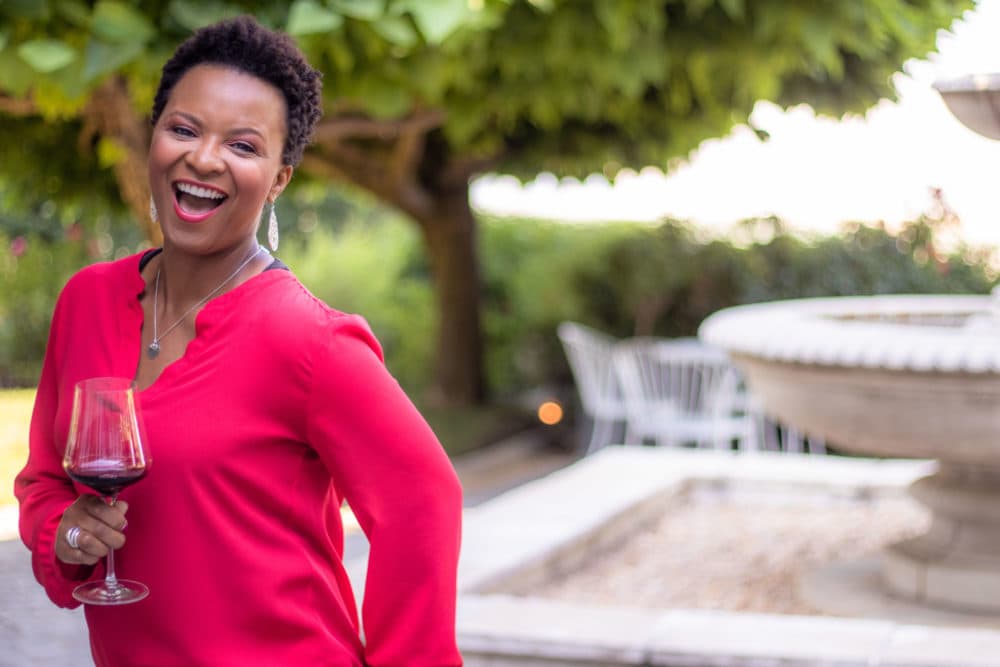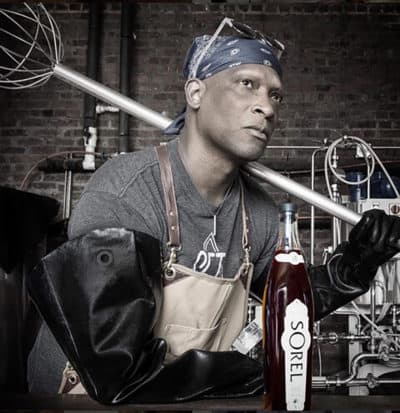Advertisement
People Of Color Break Barriers In White-Dominated, 'Impenetrable' Alcoholic Beverage Industry
Resume
Do you know where your wine comes from? What about your beer or liquor?
These industries bring in billions of dollars in revenue each year — and are almost exclusively white-dominated industries.
Jackie Summers is one of the entrepreneurs who has broken through. In 2010, he survived a cancer scare, which inspired him to launch Sorel Liqueur. It’s a type of liqueur that nearly every Caribbean family makes, he says.
“Everyone thinks theirs is the best,” he says. “I thought mine was the best.”
What Summers didn’t know was that when he launched his brand in 2011, he was the first Black person in the U.S. to hold a license to make liquor.

Shae Frichette followed a similar path into the alcohol industry. Seven years ago, she launched Frichette Winery in Washington State’s Red Mountain. Today, she’s grown to five acres and produces about 2,000 cases of wine each year.
But she’s still the only Black woman winemaker in the state of Washington, in part because the mostly white world of wine is a “boy’s club,” Frichette says.
Not only did she have to overcome racism, but also sexism breaking into the industry, Summers says.
“I want to give props [to Shae] who had to take the double hit of racism and misogyny, because the only thing harder than being a Black person in this country is being a Black woman,” he says.
It’s difficult for people of color to get started in the alcohol industry because gaining funding for your brand is all about who you know, Summers says.
“The entry to market is designed to be almost impenetrable,” he says. “And unless you have extraordinary resources or extraordinary willpower, you'll never see people like us doing these things.”
Once in the industry, people of color also face everyday instances of racism that create barriers to growing their brands, Frichette says. When people find out she owns Frichette Winery, she says she can’t help but feel that may deter people from wanting to invest.
“Just yesterday I had someone in my tasting room, and I'm welcoming them and I'm talking about the wines,” she says, “and one of the folks in that party just says, 'Oh, like what do you do, assist the winemaker here?' ”
Summers says he has dealt with similar experiences. Many people assume that he’s not the owner of his brand.
“I can't tell you how many times I've shown up with my brand and people have said, 'Oh, deliveries are in the back,' ” he says. “Sorry, I'm not doing deliveries. I own the brand.”
Alcohol companies that already have a Black audience need to use those faces in their marketing and advertising, Frichette says. Doing so will help acclimate people to the idea that Black people are leaders in this industry, which will help create a pathway for representation, Summers adds.
“I am more than the laborer. I am more than the factory worker,” he says. “I am the idea. I am the concept. And at the end of the day, I'm the person that says yes or no. So if you don't know how to deal with me, you have to adjust.”
Even though he was able to break through and foster a successful brand, Summers says he remains fearful of exceptionalism because he is one of a few Black people in the industry.
That’s because Black people don’t have the privilege of thinking their accomplishments are exceptional, he says. He points to the example of his father, a pianist who played with Louis Armstrong, Duke Ellington and others.
“He played with all the jazz greats, but he would not think of what he did as exceptional. He was trying to eat and feed a family,” Summers says. “So I think that there are lots and lots of people like Shae, like myself, who are doing the thing that we do because there's no other standard but exceptional.”
It all comes back to the systemic barriers to entering the alcohol market, he says.
“The alcohol industry in this country owes everything to Black people,” Summers says. “A slave taught Jack Daniels how to make whiskey. So much is owed to us, and we own so little of it. And I want to see more of us own things.”
During this moment of racial reckoning, Frichette says she is hopeful that a shift will happen in the industry. But she says she also thinks critically about what she can do to help make that happen.
“How do I still do my best to open doors for the next Black woman who wants to get into this industry? How can I help be a voice for her?” she says. “I want to ask myself those same questions and make sure that I'm being held accountable, too.”
Summers says he is also encouraged that this moment will bring change in the alcohol industry.
“We are at a moment in time ... where there’s flow, and the flow is in our favor,” he says. “And I want people who look back in 50 years on the uprising of 2020 to know back then, we made changes that they can stand on.”
Marcelle Hutchins produced and edited this interview for broadcast with Tinku Ray. Samantha Raphelson adapted it for the web.
This segment aired on August 11, 2020.

